In Virginia, the term squatter is used to describe an individual or group of people who occupy a property without permission from either the owner or legal tenant. In order to be legally considered a squatter, they must have taken up residence in a dwelling with the intent of claiming it as their own and not as a short-term visitor.
It is also important to note that although someone may have been occupying the property for an extended period of time, this does not automatically give them any rights to the land. Squatters’ rights, if any exist, are based on state laws and must be determined on a case-by-case basis.
It is important for landlords and homeowners in Virginia to understand what constitutes squatting and how it can affect their property rights.
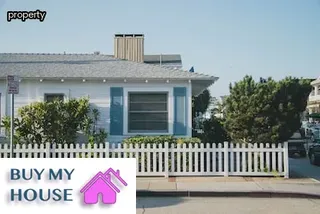
In Virginia, squatters’ rights are governed by common law, which is a set of principles and regulations formed by court decisions rather than statutes. This means that the legal status of squatters in Virginia is determined on a case-by-case basis.
As long as a squatter can demonstrate that they have been living on the property for an extended period of time with the permission or knowledge of the owner, they may be eligible to receive certain protections under the law. In order to understand how these laws apply to landlords or homeowners in Virginia, it is important to understand what constitutes a squatter and their rights.
Generally speaking, squatting occurs when someone takes up residency in an abandoned property without any formal agreement between them and the owner. To qualify as a squatter and gain protection under Virginia law, they must have lived there uninterruptedly for at least 15 years and must have paid taxes while residing on the land.
Additionally, they must show that they acted as if they owned the property by making improvements to it over time. If all of these factors are met then Virginia courts may recognize their rights as legitimate occupants on the land.
Squatting and trespassing are both violations of the law, but they are not the same thing. Squatting is when someone takes up residence on another person’s property without permission from the owner.
Trespassing involves entering a person’s property without permission, but does not necessarily involve taking up residence or occupying the property for an extended period of time. In Virginia, squatters may become entitled to certain rights if they remain in possession of a property over an extended period of time, even if their occupancy was initially unauthorized by the owner.
Understanding these distinctions is important for landlords and homeowners in Virginia who want to know how to protect their rights and ensure that any unauthorized occupants do not gain legal ownership of their properties.

In Virginia, a squatter's right to adverse possession can be established through the demonstration of certain criteria. The squatter must occupy the land in question for at least 15 years, paying all applicable taxes and meeting other legal requirements such as posting notices of occupancy.
Additionally, the squatter must also demonstrate that their occupancy is continuous and exclusive, which means they must not have shared access with anyone else during that time. Further, the occupation of the land must be done openly and notoriously - meaning any fences or signs should clearly indicate that someone is living there.
Lastly, the occupant must show both an intent to possess the land as well as a good faith belief that they own it. If all these criteria are met, then a claim of adverse possession may be granted in Virginia.
As a landlord or homeowner in Virginia, it's important to take proactive steps to prevent future squatters from taking up residence on your property. The best way to do this is by making sure that the property is secure.
This may involve adding locks to any doors and windows, installing fencing or walls around the perimeter of the property, and ensuring that all access points are consistently monitored. Additionally, landlords should require tenants to provide proof of residency in order to verify legal occupancy when signing a lease agreement.
Furthermore, homeowners should be diligent in checking for signs of unauthorized occupation such as garbage or debris left behind. It's also important to keep track of anyone who had access to the property and take immediate action if they are no longer authorized to be there.
By following these simple steps, landlords and homeowners can protect their property from squatters and ensure full enjoyment of their rights as property owners in Virginia.

When it comes to understanding squatter's rights in Virginia, it is important for landlords and homeowners to know what their rights are. While the law does provide protection for squatters, there are limits that apply.
Generally speaking, if a squatter has lived on a property for more than 15 years without interruption, they may have obtained legal title to the land. However, if they have been living on the land shorter than 15 years, they may still be able to assert adverse possession claims in some circumstances.
Landlords and homeowners should also be aware of the difference between tenants-at-will and tenants-in-sufferance – both of which involve squatters who pay rent or otherwise accept an agreement – as this could impact their ability to take legal action against squatters. Additionally, landlords should consider the Virginia Landlord Tenant Act when dealing with unlawful squatters; while this act outlines the rights of tenants who enter into written rental agreements with a landlord, it also provides guidance on how to handle unlawful tenants.
Understanding these laws can help landlords and homeowners determine their rights and take appropriate actions when necessary.
Living in Virginia, knowing how to protect oneself from squatters is an important skill for landlords and homeowners. To avoid becoming a victim of squatting in VA, there are certain steps that can be taken.
Knowing the laws surrounding squatting, being aware of potential warning signs, and having proper documentation and communication with tenants are all key measures that can help minimize the risk of someone taking up residency without permission. It is also important to know what steps to take if squatter’s rights have already been established on a property.
Understanding Virginia law regarding squatter’s rights can provide property owners with the knowledge they need to properly address any issues that may arise. Taking the necessary precautions now can help ensure that one’s home or rental property remains safe and secure in the future.
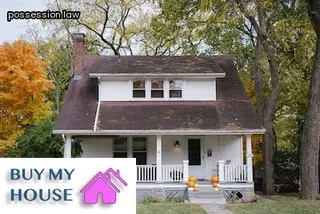
In order to support an adverse possession claim in Virginia, there is a certain set of evidence that must be provided. First, clear and convincing proof must be presented that a claimant has been in exclusive possession of the property for at least twenty years without permission from the true owner.
This can include things such as payment of property taxes, improvements made to the property, or use of the land for farming or other activities. Additionally, it is important to demonstrate that the squatter was open and notorious about their claim to the land- meaning they were not hiding it- as well as hostile towards the true owner’s right to possess it.
Furthermore, presented evidence should also show that there was actual physical possession (living on or otherwise using) and continuous occupancy with no interruptions over the course of two decades. Finally, color of title is another element which can provide evidence in support of an adverse possession claim if a deed or other document exists which falsely conveys title to someone other than true owner.
Establishing an adverse possession claim in Virginia is a process that requires the squatter to meet certain time requirements. Generally, the squatter must occupy the property for at least 15 years before they can make a valid claim, and this time period must be continuous.
In addition, the occupation must generally be exclusive, hostile, actual, open and notorious, and under good faith and reasonable belief of ownership. These conditions are necessary for an adverse possession claim to be successful in Virginia; if any of these conditions are not met, then an adverse possession claim cannot be made.
It is important for landlords and homeowners to understand these time requirements when dealing with squatters as it helps them protect their property rights.
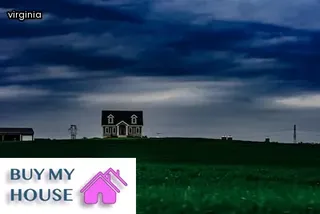
Removing squatters from a property can be an uphill battle for landlords and homeowners in Virginia. It is important to understand the legal process involved in evicting a squatter, as well as the resources available to assist with the process.
First, it is important to establish whether or not someone is considered a squatter on your property. In Virginia, this means that they do not have permission to live there and have not paid any rent or bills associated with the property.
To start the eviction process, you must serve a Notice of Unlawful Detainer, which includes information such as how long they have been living there and when they must leave. If they fail to vacate by the specified time, you can file a Complaint for Unlawful Detainer in court, which will start the eviction proceedings.
If necessary, law enforcement may also be able to help remove them from your property if their actions pose a risk to those around them or threaten public safety. Additionally, some legal aid organizations are available to provide support during the eviction process.
By understanding all of these practical strategies for removing squatters from your property in Virginia, landlords and homeowners alike can ensure that their rights are respected during this difficult process.
When it comes to dealing with unauthorized occupants (squatters) on your property, it is important to understand the laws in Virginia and consider whether legal action may be necessary. Before taking any steps, landlords and homeowners should familiarize themselves with their rights as defined in the Virginia Code.
Depending on the circumstances of the situation, it may be possible to evict a squatter without court involvement. However, if the squatter has been living on your property for a significant amount of time or has taken steps to establish residency, then you may need to pursue legal action.
In order to do so, you will likely need to file a lawsuit in court and prove that you are the rightful owner of the property. It is important to note that squatters have certain rights under Virginia law that must be taken into account when considering any action against them.
Therefore, it is highly recommended that landlords and homeowners consult with a qualified attorney before taking any kind of legal action against squatters residing on their property.
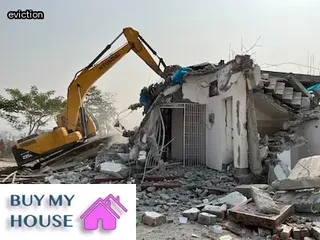
When it comes to assessing potential risks associated with allowing unauthorized occupants on your property, Virginia landlords and homeowners should be aware that there are a variety of legal implications to consider. Squatter's rights in Virginia may allow an individual without permission to occupy land or a home on the basis of adverse possession, meaning they have occupied the premises for a period of time without the explicit permission of the owner.
From a legal perspective, squatters may also attempt to claim ownership based on long-term occupancy if certain criteria regarding occupancy is met. Landlords and homeowners should be aware that squatter's rights in Virginia must comply with both state and federal laws, and failure to do so can lead to possible eviction proceedings and other civil penalties.
Additionally, potential risks associated with unauthorized occupants include liability for tenant injuries, damage to property, nonpayment of rent or utilities bills, as well as being legally obligated to provide basic services like heat and running water. It is important for landlords and homeowners in Virginia to take all necessary steps when considering allowing unauthorized occupants on their property in order to protect their legal interests and guard against any unwanted risks.
In many instances, disputes between landlords and unauthorized occupants can be resolved through alternative solutions. These solutions can range from negotiations to mediation, and can often be less costly than legal action.
For those wishing to explore these options in Virginia, there are a few key points to understand regarding squatters' rights. Firstly, squatter's rights do not grant the occupant any ownership of the property or the right to remain indefinitely; however, they may be entitled to compensation for improvements made on the property.
Secondly, Virginia law does not recognize adverse possession claims for residential properties. Finally, landlords should be aware that eviction proceedings of an occupant who has lived on the property more than three years may come with additional legal requirements.
It is important for landlords and homeowners in Virginia to familiarize themselves with these rights in order to effectively resolve disputes with unauthorized occupants.
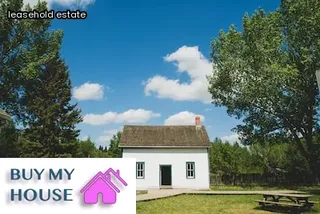
Virginia landlords and homeowners have a right to manage their properties in the case of an unwanted squatter. To help ensure that law-abiding citizens are given the resources they need to protect their property, there are several free resources available to Virginia landlords and homeowners.
For starters, landlords should be aware of the laws surrounding squatting in Virginia, which can be found on the state's official website. Additionally, there are organizations such as The National Squatting Rights Center that offer free legal advice and assistance for those dealing with squatters.
Finally, it is important for landlords to know their rights when evicting a squatter from their property; this information can be found in a variety of online sources such as government websites and other legal resources. By utilizing these free resources, Virginia landlords and homeowners can be better informed about how to handle unwanted squatters on their property.
In Virginia, squatters have certain rights that landlords and homeowners should be aware of. Squatting is a form of occupying property without permission or legal right.
Generally, squatters are not considered to be tenants and do not have the same rights as tenants with leases. However, they may still have some protections under Virginia law.
For example, in some cases, if a squatter occupies a property for more than 15 years, the squatter may acquire title to that property by adverse possession. Further, while squatters may be subject to eviction proceedings, they cannot be removed from the property without court order.
Landlords or homeowners should seek advice from an attorney with experience in Virginia landlord-tenant law for guidance on resolving squatter disputes.

Squatting in Virginia is a unique and complicated issue. Squatters are people who occupy another person's land or property without permission or legal right. In some cases, these individuals may be able to establish certain rights to the property, known as "squatter's rights".
Landlords and homeowners in Virginia should understand how these rights work, so they can protect their property. In Virginia, squatters have the potential to gain possession of a piece of real estate if they meet certain requirements. To do this, squatters must demonstrate that they have been living on the land for an extended period of time (usually five or more years) and that they have made improvements to the property such as constructing a dwelling or making repairs.
Additionally, squatters must be able to prove that they are in open and notorious possession of the land. This means that the public is aware of their presence on the land and that their occupancy has not been challenged by anyone else with legal claim to it. If squatters can meet these criteria, then they may be granted certain rights over the land or property they are occupying.
These rights include being able to remain on the property without being evicted by its lawful owner until a court orders them off, being legally entitled to use any improvements made during their occupancy and even having access to limited legal remedies for injuries suffered while on the property. It is important for landlords and homeowners in Virginia to understand how squatter's rights work so that they can protect their own interests when dealing with unauthorized occupants. By having a clear understanding of what constitutes squatter's rights in Virginia, landowners can take steps to prevent illegal occupants from gaining any type of legal authority over their properties.
In Virginia, the shortest time for a squatter to gain rights to an abandoned property is seven years. Seven continuous years of possession of an abandoned property grant a squatter certain rights, such as obtaining title by adverse possession or being able to sue for trespass.
If a squatter has maintained title on the property for seven years, they can then use that property as if they own it. Landlords and homeowners in Virginia must be aware of this law so they understand their legal rights in relation to squatters.
It is recommended that landlords and homeowners take steps to prevent squatters from occupying their land for longer than 7 years, including posting notices and hiring security guards. Additionally, tenants should not be allowed to occupy any structure without written permission from a landlord or homeowner.
Understanding these laws is essential for anyone who owns property in Virginia, since it can have serious implications if left unaddressed.
Adverse possession, commonly known as squatting, is a legal process by which a squatter can acquire the title of a property they occupy without the permission of the owner. In Virginia, adverse possession requires that the squatter has been in exclusive, continuous and open possession of the property for at least 15 years.
To claim adverse possession in Virginia, the squatter must demonstrate that they have paid all taxes associated with the property and made improvements to it; that they have not abandoned or relinquished their possession; and that they have maintained exclusive possession—meaning no other person has used or occupied the property during that time frame. It is also important to note that there are certain conditions which must be met in order for a squatter to acquire title through adverse possession in Virginia.
These include: (1) paying taxes on the property for at least 15 years; (2) using/occupying the land openly and notoriously; (3) using/occupying it exclusively—without interruption from others; and (4) possessing it continuously for at least 15 years. Understanding these requirements can help landlords and homeowners protect themselves against squatters’ rights claims in Virginia.